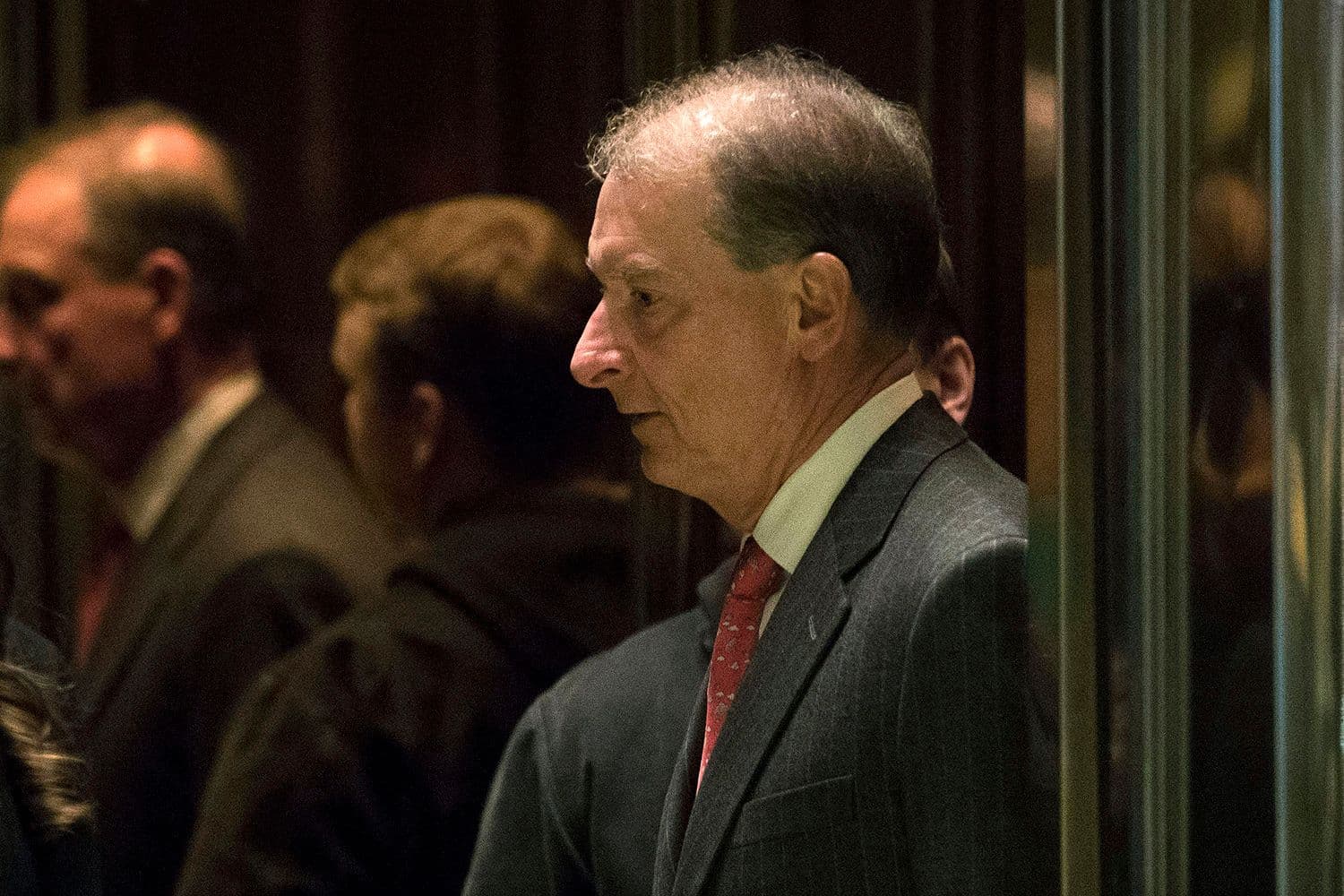What to expect from incoming SEC chair Paul Atkins
For starters, deregulation.

Drew Angerer/Getty Images
• 5 min read
Let’s throw a new self-help guidebook into the mix: “What to Expect When You’re Expecting…an SEC Chair.”
In early December, President Donald Trump selected Paul Atkins as chairman of the Securities and Exchange Commission, bringing the business-friendly Republican back to the agency where he first cut his teeth. After working at the SEC under both Democrats and Republicans throughout the 1990s, Atkins served as SEC commissioner under President George W. Bush until 2008. Following his SEC tenure, Atkins founded a financial services consulting firm called Patomak, representing companies on regulatory matters.
Under Atkins’s tenure as chair, which still needs Senate confirmation, we’re likely going to see a hands-off regulatory approach at the SEC, particularly when it comes to crypto assets.
More on that in a minute. First, a general vibe check.
Who is this guy anyway? Atkins is well-respected in the securities regulation arena, Lisa Bragança, a former SEC branch chief who now leads a securities defense law firm, told CFO Brew.
“My understanding is his style is not combative,” Bragança said. “He's a reasonable person who tries to, through conversation or working with people, come to a reasonable solution.” Yes, that “reasonable solution” tends to be deregulation, she noted, but other securities experts also stress his cooperative demeanor.
“There's no question he's smart, capable, and experienced,” Ben Schiffrin, director of securities policy at Better Markets, a nonprofit that advocates for Wall Street regulation, told CFO Brew, highlighting Atkins’ appreciation for the Commission and the staff.
“He'll be a leader that, at times, may disagree with the staff, but will be respectful to them and understand where they're coming from,” Schriffin, who worked at the SEC during Atkins’s first term, said.
Man of his word But SEC chairs don’t tend to be personality hires. For a better sense of where Atkins might take the SEC, look to speeches and other public remarks, Bragança and Schiffrin say.
Atkins did not respond to a request for comment.
“His speeches and statements are even more indicative than his voting record, because he's said how he is pretty skeptical of regulation,” Schiffrin noted.
In fact, his voting record is difficult to parse. While some commissioners publicly revealed their votes during Atkins’s first tenure, they did not do so routinely, “obscuring commissioners' overall records from public view,” Reuters noted in an analysis of Atkins’ voting record. Only 28 months of Atkins’ voting records, from 2006 to 2008, are available.
News built for finance pros
CFO Brew helps finance pros navigate their roles with insights into risk management, compliance, and strategy through our newsletter, virtual events, and digital guides.
But in speeches, for instance, Atkins has also been fiercely critical of Dodd-Frank, the protection act put in place by President Barack Obama after the 2008 financial crisis, going so far as to say “one could write a book about the various problems with the statutory text and implementation” of Dodd-Frank in a testimony to the House of Representatives Committee on Financial Services in 2015.
One especially revealing speech? A 2004 address where he argued that Wall Street was the “scapegoat” for economic deterioration in the US in the 1930s.
“The moral of the story is that the cause of the poor market performance and extended depression was not the result of the market's failure, but US economic and regulatory policy,” Atkins said in remarks before the Securities Traders Association in Boca Raton, Florida.
“The government failed to recognize that its attempt to fix the economy by interfering with market forces first enhanced the stock market bubble, then sent the market into a whirlwind crash, and then prolonged the business depression,” he said.
That’s a pretty telling stance, in Schiffrin’s eyes. “A lot of people think that the excesses of Wall Street caused the crash,” he pointed out, adding that the federal securities laws passed as a result are a large part of what keeps US capital markets flourishing.
“The reason that our capital markets are the envy of the world is because they're well regulated and well policed,” he said. “Obviously you can't prevent all fraud, but we have rules and regulations where people can feel relatively confident that they can invest their money safely. It's really important to bear in mind that regulation really is the foundation of our capital markets.”
Will Atkins prove reluctant to fine companies? Schiffrin believes Atkins will be unlikely to “levy civil penalties against corporations.” Reuters reported that, in remarks, Atkins “argued that corporate fines only hurt shareholders who had already suffered from the original misconduct.”
“He's pretty firmly on record saying he doesn't think that that's a good idea,” Schiffrin said. “Aside from the merits of that policy position, I think what will be interesting to see is, if that is, in fact, the case. Does he go after the individuals that are responsible? That is a simple, important distinction.”
News built for finance pros
CFO Brew helps finance pros navigate their roles with insights into risk management, compliance, and strategy through our newsletter, virtual events, and digital guides.